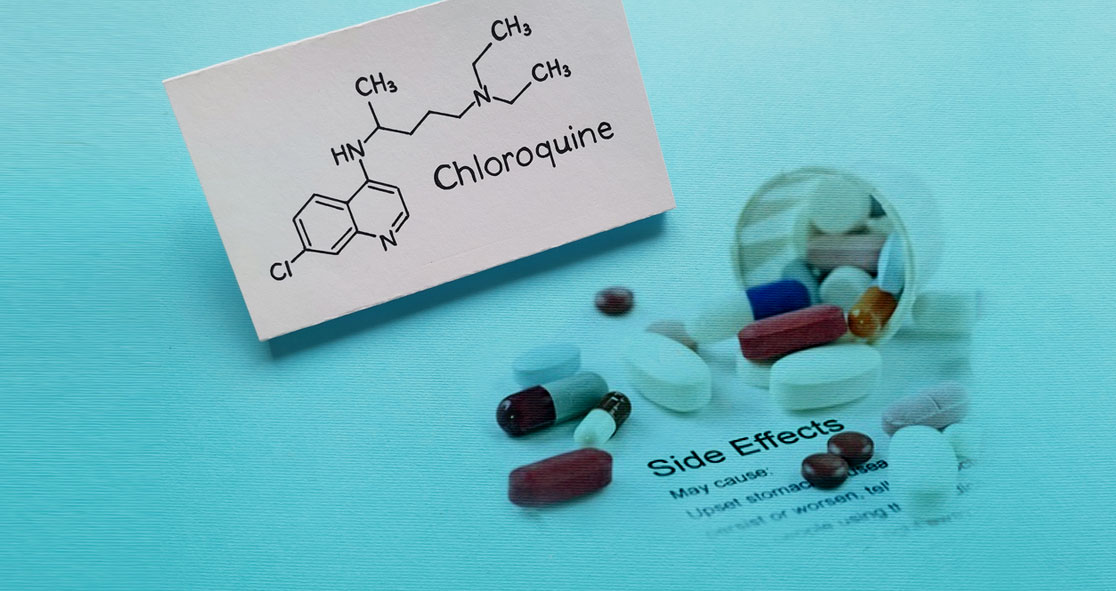A new report, published online in July in The Journal of Clinical Psychiatry, has found that chloroquine could increase the risk of serious psychiatric side effects, even in patients who have no family or personal history of mental health disorders.
Researchers of the report summarized data from several studies published from 1993 to May 2020.
Lead author Dr. Florence Gressier told Medscape Medical News, “In addition to previously reported side effects, chloroquine could also induce psychiatric side effects which are polymorphic and can persist even after stopping the drug.”
“In COVID-19 patients who may still be [undergoing treatment] with chloroquine, close psychiatric assessment and monitoring should be performed,” she added.
Amid the ongoing coronavirus pandemic, chloroquine and hydroxychloroquine have been at the center of heated debates for their potential role in treating or preventing COVID-19 the infection caused by the novel coronavirus.
Citing a small French study that suggested the efficacy in lowering the viral load in COVID-19 patients, President Donald Trump touted hydroxychloroquine as a “game-changer” in combating the COVID-19 crisis.
However, other studies have raised concerns over the safety and efficacy of hydroxychloroquine in treating COVID-19. In June, the US Food and Drug Administration (FDA) retreated the Emergency Use Authorization (EUA) it had given in March to both chloroquine and hydroxychloroquine for the treatment of coronavirus.
Nevertheless, doctors continue to prescribe hydroxychloroquine for patients with COVID-19.
Dr. Gressier said, “We wanted to alert the public and practitioners on the potentially psychiatric risks induced by chloroquine, as it could be taken as self-medication or potentially still prescribed. We think the format of the letter to the editor allows information to be provided in a concise and clear manner.”
According to the data from the FDA, 12% of patients reported neuropsychiatric adverse events after using chloroquine from 2012 to 2019, which included symptoms such as “amnesia, delirium, hallucinations, depression, and loss of consciousness,” the authors wrote.
The investigators explained that the incidence of psychiatric side effects linked to the use of chloroquine is “unclear in the absence of high-quality, randomized placebo-controlled trials of its safety.”
Nevertheless, they pointed out that there have been reports of depression and insomnia when chloroquine was used preventing malaria.
Furthermore, there have been a few cases of anxiety, depression, agitation, psychosis, violent outburst, and suicidal thoughts among patients who were treated with chloroquine for malaria.
The authors wrote, “In contrast to many other psychoses, chloroquine psychosis may be more effective and include prominent visual hallucinations, symptoms of derealization, and disorders of thought, with preserved insight.”
The potential psychiatric adverse effects of chloroquine may go unnoticed, especially because coronavirus itself has been found to develop some neuropsychiatric symptoms, according to the authors. This makes it hard to distinguish between psychiatric symptoms caused by COVID-19 and those caused by chloroquine. Dr. Gressier recommended clinicians to look out for reports about self-medication with chloroquine “and warn their patients about the risk induced by chloroquine.”























